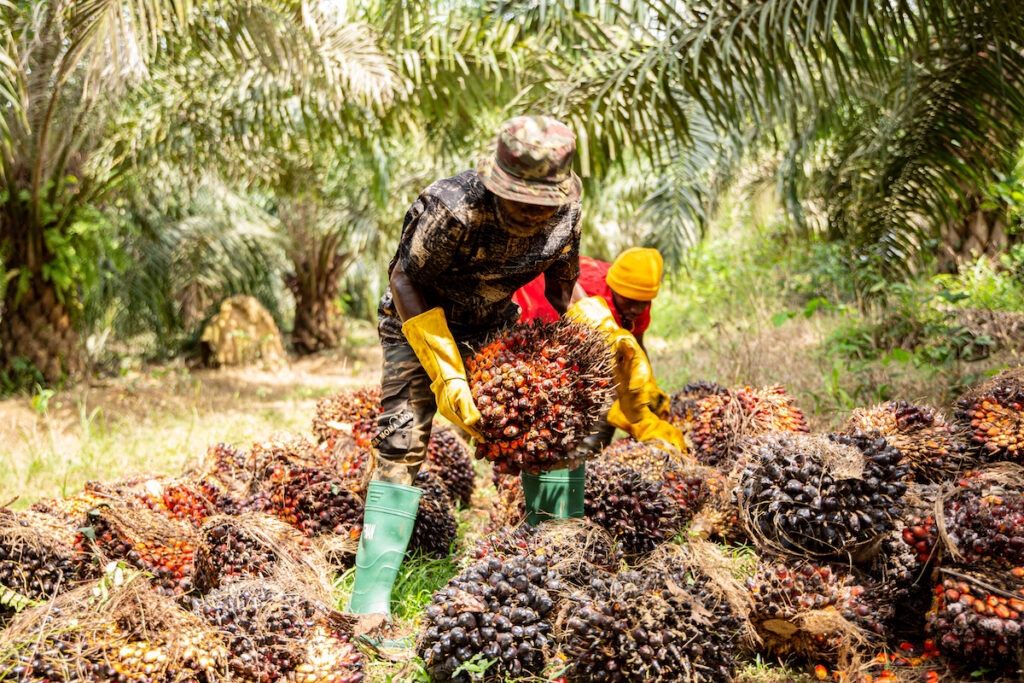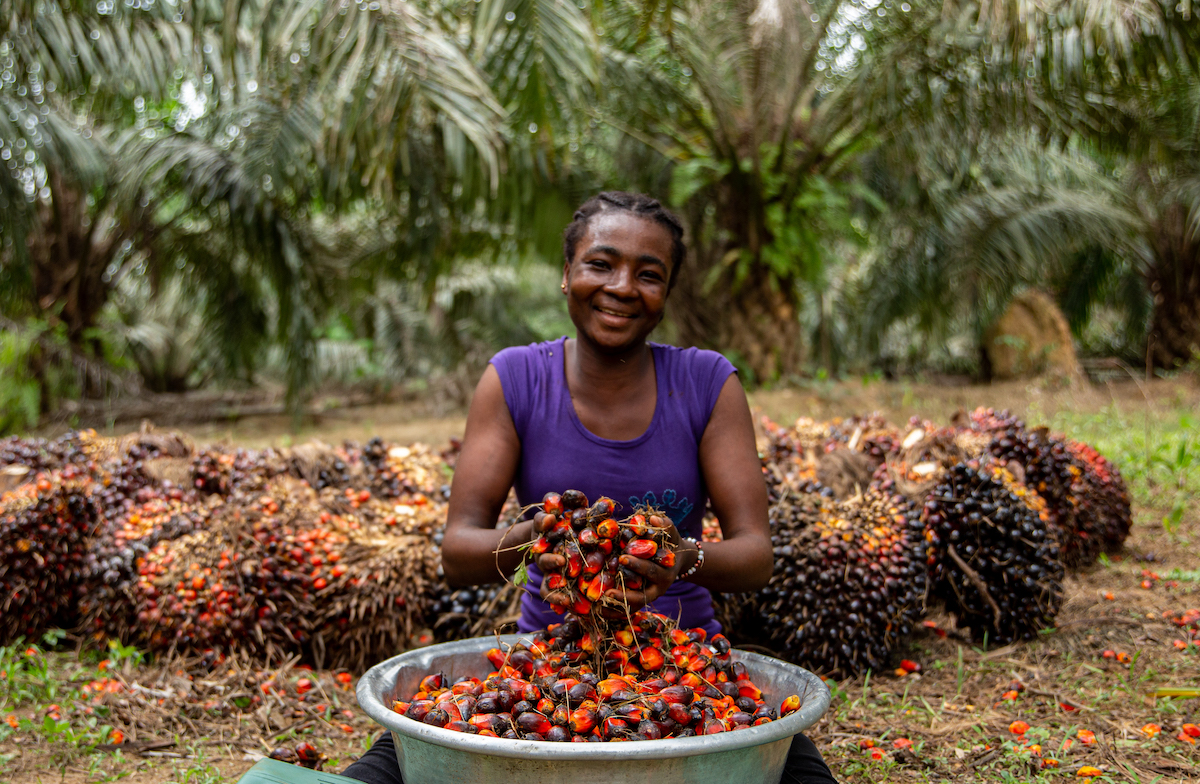Aggregators and mills in Ghana are now mandated by law to pay at least the monthly minimum price set by the Government of Ghana for each month. The price set for January, February and March was 1,252.92 cedis (105.76 euros), 1,157.90 cedis (97.74 euros) and 1,433.70 cedis (121.06 euros) per tonne of FFB, respectively.
This new direction follows a series of discussions between the Oil Palm Development Association of Ghana (OPDAG), the industry association, which includes all actors and the Tree Crop Development Authority (TCDA), the regulatory body for tree crops, with support from Solidaridad.
Development of a pricing mechanism and the role of Solidaridad
The minimum producer price is the result of a pricing mechanism developed with the support of Solidaridad under the RECLAIM Sustainability! programme and adopted by the Government of Ghana. The pricing mechanism encompasses all the challenges, stakeholder concerns, and internal and external variables that were quantified to develop a pricing formula.
As a first step, Solidaridad organized meetings between stakeholders, value chain actors and policymakers to deliberate on challenges associated with pricing and seek solutions. Solidaridad also contracted consultants from the Institute of Social Statistical and Economic Research (ISSER) and together, worked with farmers, aggregators, mills and other value chain actors to develop the pricing mechanism.

The team referenced other countries, including Côte d’Ivoire, Indonesia and Malaysia, that had successfully implemented a pricing mechanism, as well as plantations in Ghana that had a quasi-pricing mechanism. The team considered the concerns and interests of all stakeholders and developed a pricing formula for the value chain.
With the pricing mechanism in hand, Solidaridad convened a series of dialogues between the industry association and government regulators to review the mechanism, share their perspectives and approve it for adoption and use. Solidaridad also facilitated the sensitization of the mechanism to all stakeholders to ensure a better appreciation and the considerations behind the formula.
The pricing formula has been benchmarked against the international Crude Palm Oil and Palm Kernel Oil prices, as well as adjusted to the exchange rate. Unlike the cocoa supply chain, where prices are announced annually, the minimum producer price for fresh fruit bunches is agreed by stakeholders and announced monthly, subject to some key considerations and market dynamics.
A step toward fair value distribution
The lack of inclusive policy frameworks to address unfair value distribution, resource inefficiency, and gender inequalities has been an ongoing problem in Ghana’s oil palm sector. The new pricing mechanism shows potential for incentivizing oil palm farmers to remain in the supply chain.
Martin Ola, a farmer in the Western region, explains how the arbitrary pricing system that previously existed adversely affected his income projections and financial planning:
In the past, my minimum income was tied to the benevolence of the aggregators or mills and was often erratic. This made it difficult for me to plan. Under this current arrangement, I can predict my minimum income and effectively plan with it.
Martin Ola, a farmer in the Western region of Ghana
Under the previous pricing regime, farmers had to contend with low prices, often below their production costs. To provide a semblance of stability, they would often need to scan to the market to identify regions, aggregators or mills with relatively better prices and transport their harvest to those buyers. This had its own set of challenges, including travel-associated risks and the potential for disruptions for processing mills offering lower prices. The minimum producer price ensures that every farmer regardless of geographical location is assured a fair minimum price.
For many aggregators, this new directive has helped to standardize their trade relationship with the farmers. Previously, the relationship was clouded with suspicions and mistrust, as farmers would often assume they were being short-changed by the aggregators.
“Farmers would often label us with obscene names and demand that we pay a higher price for the fruits. However, we were also constrained by the low price paid to us by the processing mills. The minimum producer price now limits the haggling and enables us to fully benefit from our hard work.” said Isaac Ampofo, General Manager of Nat – K Royal Limited
The pricing mechanism is in its third month of implementation and after three successful pricing announcements, stakeholders have fully embraced the monthly floor prices.
Farmers are generally happy. The new prices provide much needed stability, farmers value commensurate with their efforts, and the overall process has been inclusive factoring in their concerns and suggestions at every point. For many smallholder farmers, the announced prices represent a significant jump in their incomes.
Within the value chain, farmers are the most vulnerable, mainly price takers, so a mechanism that ensures they receive fair value for their work is essential. Acceptance of the mechanism by the oil palm stakeholders reflects the high level of participation through consensus building in the development process. Solidaridad continuously seeks to promote fair value distribution in supply chains and this is one of such interventions we are proud to be part of.
Paa Kwesi Forson, Programme Manager at Solidaridad

